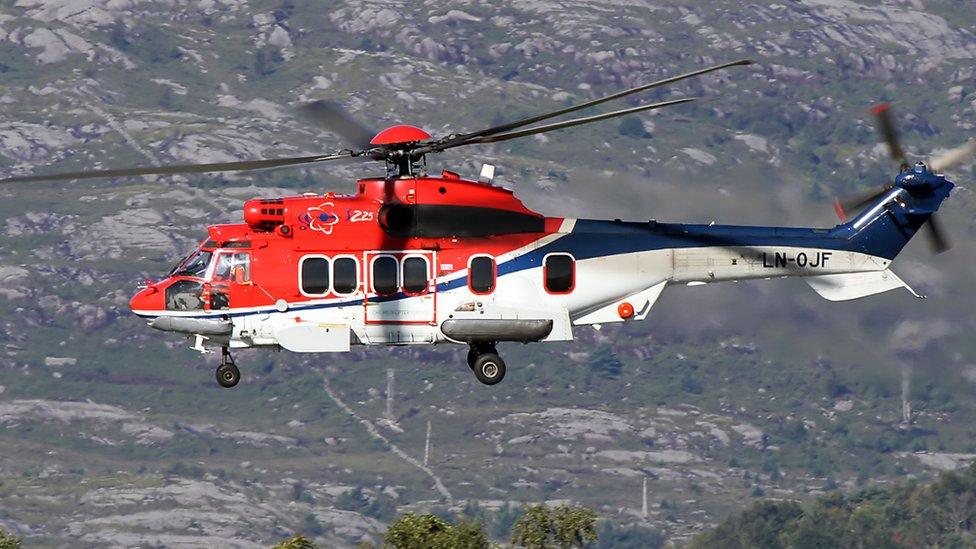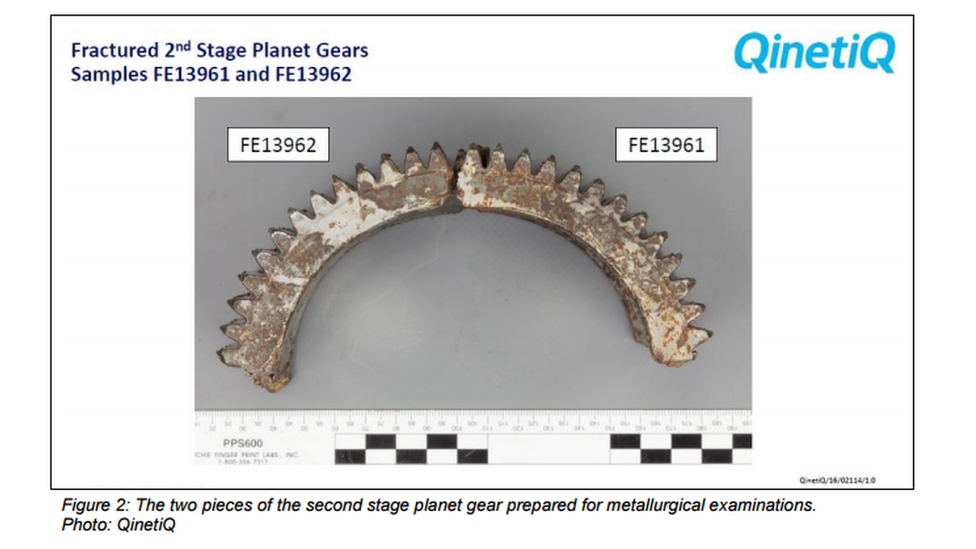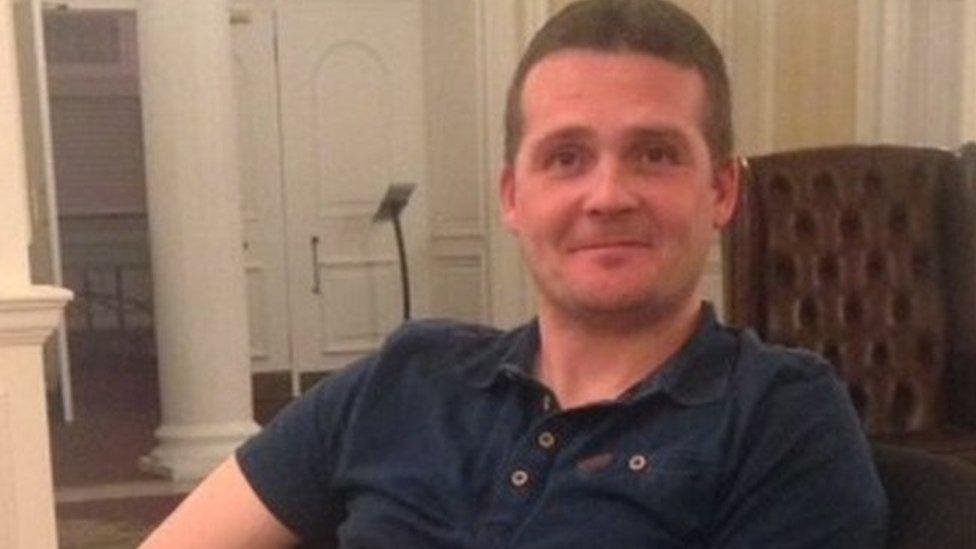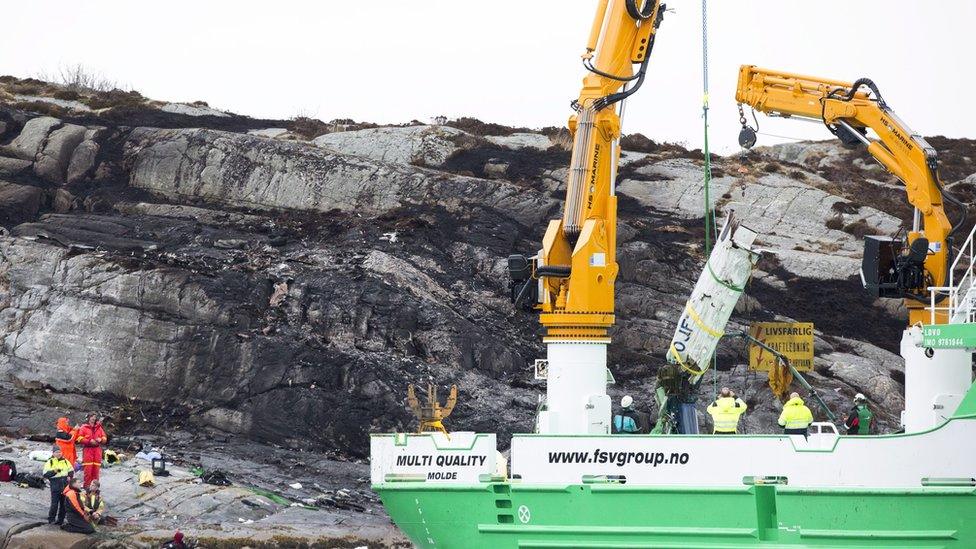European safety officials widen Super Puma grounding
- Published

The Super Puma helicopter which crashed off Norway
European aviation safety officials have extended the grounding of Super Puma helicopters amid concerns about its gearbox.
Investigators have found signs of metal fatigue in components from the aircraft that crashed off Norway in April, killing 13 people.
The European Aviation Safety Agency (EASA) said both H225 and AS332 (L2) variants should cease flying.
Iain Stuart from Aberdeenshire was among those killed in the crash.
Mr Stuart, 41, from Laurencekirk, was working for the oil field services company Halliburton and was a passenger on the helicopter.
The Airbus Super Puma 225 was travelling from the Gullfaks field to Bergen when it crashed near the small island of Turoey on 29 April.
The pilots had no time to issue a mayday and the main rotor is believed to have become detached before impact.
On Wednesday a preliminary report issued by the Accident Investigation Board Norway (AIBN) said it had found "features strongly consistent with fatigue" in parts of the main gearbox (MGB).

The report contains a photo of gearbox parts showing signs of fatigue
It added: "It cannot be ruled out that this signifies a possible safety issue that can affect other MGBs of the same type.
"The nature of the catastrophic failure of the LN-OJF main rotor system indicates that the current means to detect a failure in advance are not effective."
The Super Puma H225 helicopter had already grounded in the UK and Norway since the crash but the latest EASA directive includes the other main variant of the Super Puma and extends the ban across Europe.
An online petition calling for all Super Puma 225s to be "permanently removed from service" has attracted nearly 30,000 signatures.
'Providing proof'
Tommy Campbell, chair of the Offshore Coordinating Group (OCG) of trade unions said: "The Accident Investigation Board Norway (AIBN) report is a further development in the investigation process, but it is just part of that process.
"The OCG will await the outcome of investigations aimed at providing proof around what caused the tragedy in Norway and thereafter we will react to those findings.
"The OCG accepts and fully understands the concerns of our respective members and their families, and the OCG trade unions will continue to support members during this period.
"There is no question of this aircraft type coming back into service anytime soon as a consequence of these latest findings.
"If that position changes, we will engage with our members to determine a position".
- Published1 June 2016

- Published13 May 2016

- Published1 May 2016
